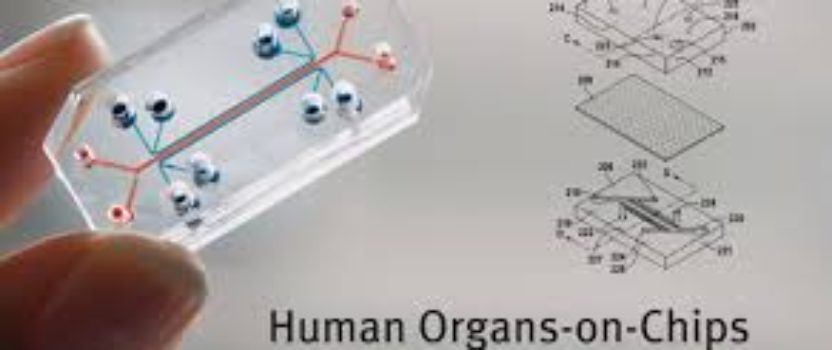“Organs-on-a-Chip”
What? Are you serious? “Organs-on-a -Chip” Really? Yes. The development of combining an organ of the body……(say the heart, or lungs, or stomach or ???) to a computer chip is not only a concept but is rapidly becoming a reality. And it’s bringing hope to many. It could eliminate the use of animal testing in research! Much of the research is done on various animals at various times during the process causing repeated trauma to our sentient creatures. These poor animals are caged from birth to death and that’s the happy part of the story of research animals. They are horribly abused, both physically and emotionally, throughout their shortened lives. In a civilized society, animals should not be used as research objects.
Now it takes a lot of money, time, failures, and disappointments to produce a medication. Developing a new prescription medicine that gains marketing approval is estimated to cost drug makers $2.6 billion according to a recent study by Tufts Center for the Study of Drug Development. And, actually less than 12% of the medications that are presented to the FDA get approved. There’s has got to be a better way and with the new development of Organs-on-a-Chip we may have found a way. There are hurdles to cross but the future looks very bright; just think of how important it would be to stop Animal Research and to be able to greatly reduce costs. This is a Win-Win in capital letters!
The main advantage of these chips is that they can be manufactured for a very low cost and this can allow researchers to test the effectiveness of a medication on a human organ without the human! This will allow ‘organs on chips’ to considerably accelerate scientific research. During the development of a new drug, the first round of tests can be conducted many times without posing much financial difficulty. In addition, there would be none of the ethical issues faced by animal testing, which are widely contested today. More and more debate surrounds the breeding of test animals for medical research, and organs on chips would put an end to the practice.
Are these ‘Organs On a Chip’ comparable to human functioning? Actually, it appears so. Scientists have shown that this concept can work by using new innovations such as ‘micro-fluids’, breathing movements, and developing Micro-Environments which have human similarities. All of this would considerably accelerate scientific research. These ‘Organs On A Chip’ (OC) can produce reliable and comparable responses to human organs while accelerating scientific research. This could change the entire development of medications while saving animals and reducing costs! As with any new research there are challenges but researchers have made huge jumps in the research. Let’s hope these Organs-on-a-Chip can be developed as quickly as possible. Vegan Doc 2/7/2019

